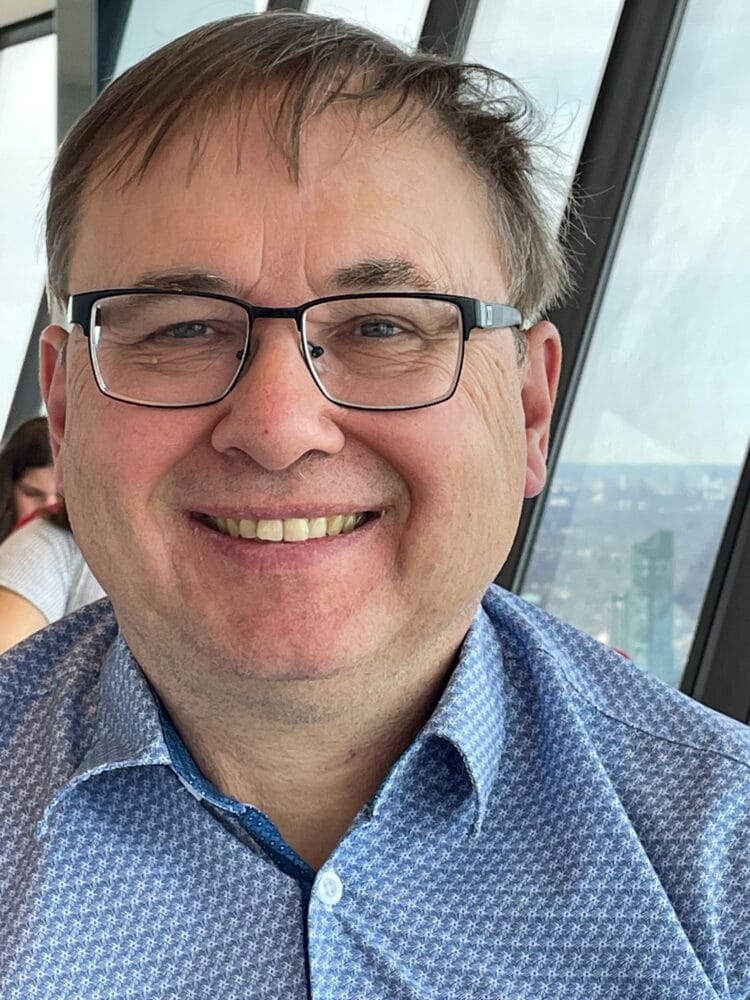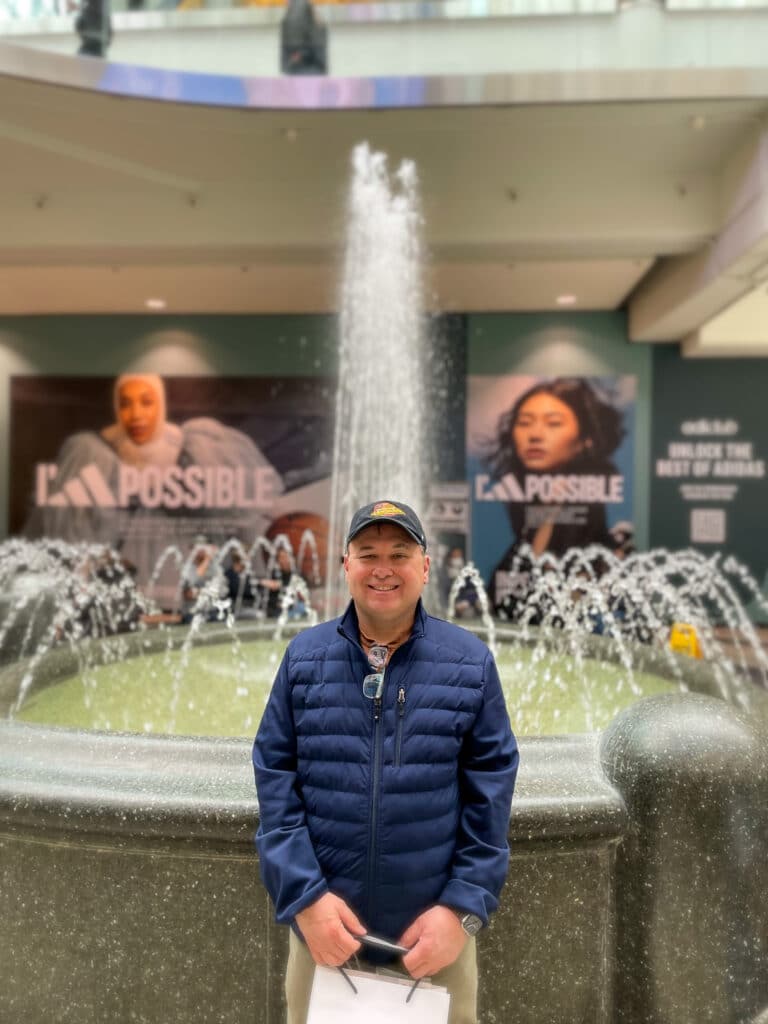
Choose Your Language:
Posted by: The Sumaira Foundation in NMO, Voices of NMO

It started innocuously. In 2008 we moved to Ottawa with my employer for my career in pest control. On a gray, cloudy but humid day, I was out removing a wasp nest for a client. She pointed to the nest hanging off a tree branch, about 10 feet away, and I thought to myself, “not this again.” My vision was blurred, and I strained to see the nest. It reminded me of a time back in 1987-88 when I had dealt with some vision issues. At the time, I had booked an appointment with my optometrist, who thought it was related to my age as I was in my early forties.
Flu shot side effects.
In the fall of 2008, I got my usual flu shot. I don’t know why this time was different, but unbeknownst to me, it would change my life drastically. My first major flare happened within a few weeks and presented as bowel and bladder issues.
By the spring of 2009, I found myself in the ER with my hands and feet numb, and my fine motor skills were problematic. The on-call neurologist wasn’t helpful. He assumed the numbness was from pesticides in my industry; however, that wasn’t the case.
My balance got worse, and by the summer, both my spouse and I were genuinely concerned.
Glimmer of hope
I worked with a new general practitioner who thought it was MS and ordered an MRI. Subsequently, while reviewing the results, a sharp-eyed radiologist saw a shadow and had me back in for a second MRI, where they found lesions at C2 to C5.
Receiving confirmation that something was wrong gave me some temporary relief; however, the wait to see a neurologist was an entire year. This is one of the downfalls of a public healthcare system. I panicked. I told a nurse that by then, I’d be in a wheelchair.
I’m grateful that my general practitioner advocated for me. He sent a second requisition with a personal letter urging an appointment. I saw a neurologist within a few weeks who took me off work for the next several months while we figured out what my new normal would be.
Grateful for my support network
In the interim, I needed family time. We flew to the UK for Christmas, but before doing so, I received the flu shot again. I was faced with another flare that progressed during the visit. On our return, I was prescribed a 3-day course of steroids. These hospital visits also earned me a referral to the MS Clinic.
I can’t express enough how difficult this time was in my life, and I only survived these experiences with the aid of 3 important people.
My spouse Karen took on every role in our lives. She did everything, from shoveling snow to driving me to my appointments, all the while still working her full-time job. She’s the support who would get me to all my appointments, work a full day with important presentations, and then have to drive out to retrieve me from the hospital.
The second individual who really impacted my life was my general practitioner.
He did that in spades and never took no for an answer. Even the neurologist I saw was impressed with the smartly worded letter detailing how the hospital had failed me by not believing my symptoms.
The third person was Jessica Stovel, an NMO patient like myself from Toronto, Ontario. I came across Jessica on the Guthy-Jackson website in 2013. Her knowledge and willingness to share her experience with this disease inspired me and gave me hope. In the end, we have become each other’s support network.
Another set back
I had not yet been diagnosed with NMO, so as a typical man, I brushed off the symptoms. I told myself it wasn’t that bad and would go away. At this point, I was referred to the MS Clinic in Ottawa, the capital city of Canada.
My initial visit with the neurologist frustrated me. While he suspected it was NMO, he could not confirm the diagnosis without a blood test, which would require approval. Back then, the blood tests for NMO were sent to the Mayo Clinic, and shipping a blood sample across the border had its challenges.
I was once again disheartened when the test came back negative. To this day, I have never tested positive for Aquaporin-4.
Being placed into a category of unknown idiopathic symptoms was really upsetting. It became a point of many discussions. While I matched the criteria, the negative blood test complicated the diagnosis until 2012.
Taking control of my healthcare
In 2012, I decided to take matters into my own hands. I returned to my optometrist, who did a visual field test and referred me to a neuro-ophthalmologist at the Ottawa Eye Institute.
In 2015, my personal circumstances changed. I decided to return to the west coast of Canada, where some of my relatives reside and, at the time, the only NMO clinic in Canada.

Moving forward
I feel like I turned a corner in my health.
I have always found that the mental component has been the toughest part of this disease. I went through a form of grieving; it was explained that we grieve for what we were prior to the onset of serious illness. Acknowledging my challenges and getting help have been key to recovering.
Understanding that now, I advocate for the mental health side for everyone.
I returned to the Canadian Rockies, a place that has been a part of my life since I was a young child, and yes, it helped. One day I had an NMO moment. I had some choice words for the disease. I decided from then on; I’d laugh at NMO.
Now I live in Calgary, Alberta. I have a great team of doctors here, and I’m proud to report I’ve been flare free for 5 years now.
My advice for those with NMO: It’s not easy to come to terms with it, but you have to, and when you do, you will feel better for it, and then you can move forward. I realize that we all see varying aspects of this disease, some better, some worse.